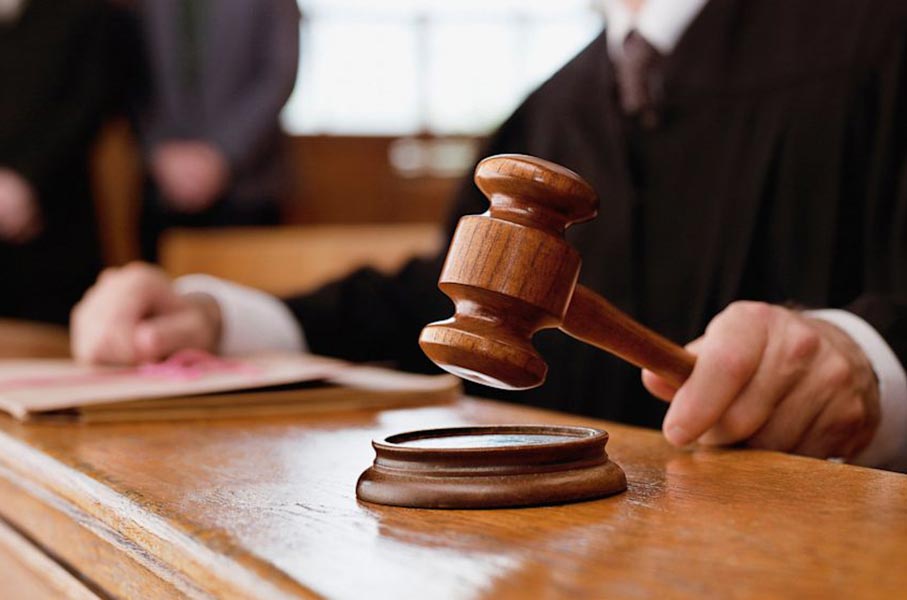A federal judge in Philadelphia last month dismissed a gay man’s workplace antibias claim on the basis that it doesn’t constitute gender stereotyping.
Justin Coleman, who worked at AmeriHealth Caritas between 2012-16, filed the claim in federal court last year. But it was dismissed on June 2 by U.S. District Judge Jan E. DuBois.
Coleman, of North Philadelphia, allegedly was victimized by workplace slurs including, “You look like a faggot,” “Your hair looks gay” and “Faggot, I’ll punch you in your face.”
In a nine-page opinion, DuBois said he was bound by a prior appellate ruling that dismissed an antibias bias claim of John Bibby, a Philadelphia gay man who alleged similar wrongdoing. The appellate ruling determined that Bibby’s claim didn’t constitute gender stereotyping, thus it didn’t allege sex discrimination, which is banned by federal civil-rights law.
According to his lawsuit, Coleman was passed over for two promotions and physically assaulted by a coworker, who spoke to Coleman in a homophobic manner.
AmeriHealth is a managed-health-care organization located in Southwest Philadelphia. Coleman also is suing AmeriHealth for retaliation, disability discrimination and other alleged wrongdoing.
Neither side had a comment for this story.
Justin F. Robinette, a local civil-rights attorney, said numerous judges have ruled that workplace antigay bias inherently involves gender stereotyping.
“Unfortunately, Judge DuBois is not one of those judges,” Robinette told PGN. “He apparently believes there’s such a thing as antigay bias that doesn’t involve gender stereotyping. Thus, it’s not sex discrimination. His ruling sends a terrible message to employers in our region that if you discriminate against LGBT workers, you won’t necessarily be held accountable in federal court.”
Robinette expressed disappointment that DuBois didn’t recognize that LGBT discrimination involves gender stereotyping.
“LGBT litigants shouldn’t have to shoehorn their antibias cases into some judge’s limited understanding of gender stereotyping. It’s frustrating to encounter a judge who thinks there’s such a thing as antigay bias that doesn’t include gender stereotyping. There is no such animal. I just wish every judge would realize that antigay bias always involves gender stereotyping. Period. There’s plenty of case law out there to support that fact. And plenty of common sense, as well.”
LGBT plaintiffs shouldn’t have more burdens than non-LGBT plaintiffs to sustain a sex-discrimination claim, Robinette added.
“LGBT workers are told to act less gay in the workplace. Yet when they seek recourse in the courts, they may face a biased federal judge who encourages them to play up whatever gender-stereotypical traits they have — if they want their case to move forward. If that judge gets any whiff that the workplace bias is truly because the person is LGBT, then the claim likely will be dismissed.”
Robinette also faulted DuBois for citing a 15-year-old appellate decision to justify his ruling.
“So much has happened in the last 15 years. But you’d never know it from this judge’s ruling. He also acknowledges marriage equality, as if his ruling would be condoned by the Supreme Court. In my opinion, it’s absurd to think a Supreme Court that established marriage equality wouldn’t also want LGBT people protected equally under the law from workplace bias.”
But Robinette said he’s encouraged by a significant number of federal judges who’ve ruled differently on the issue.
“Most federal judges who’ve addressed the issue recently have treated LGBT plaintiffs in a more just fashion. That gives me optimism for the future. I can only hope that a new generation of more-enlightened judges will apply existing civil-rights law equally to the LGBT community.”

